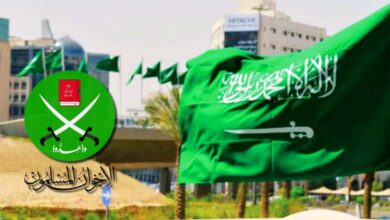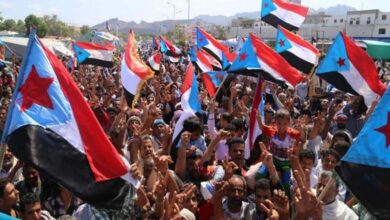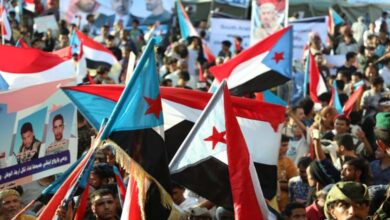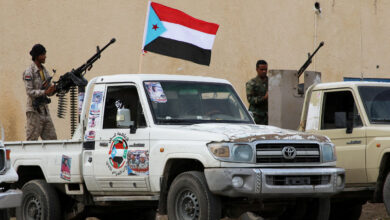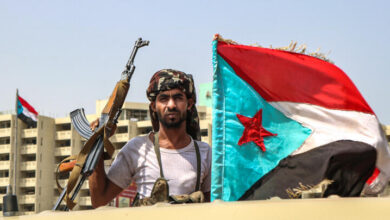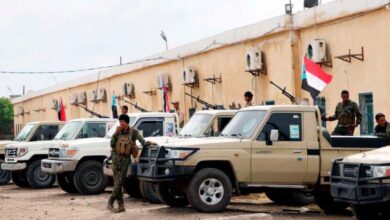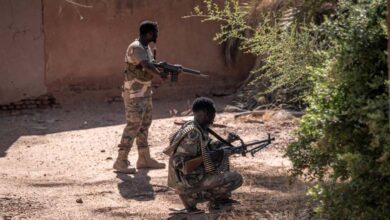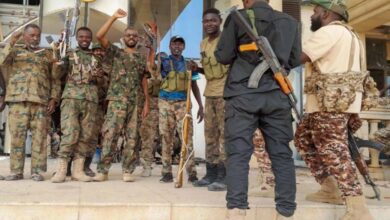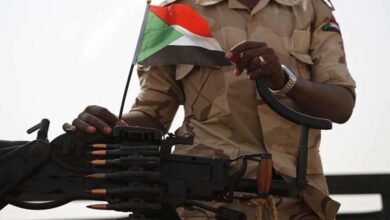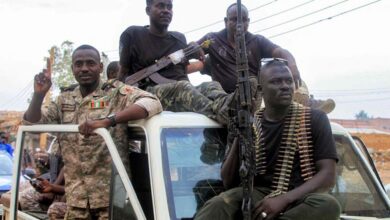Six months after the success of the ‘Muslim Brotherhood’s efforts to ignite the war in Sudan
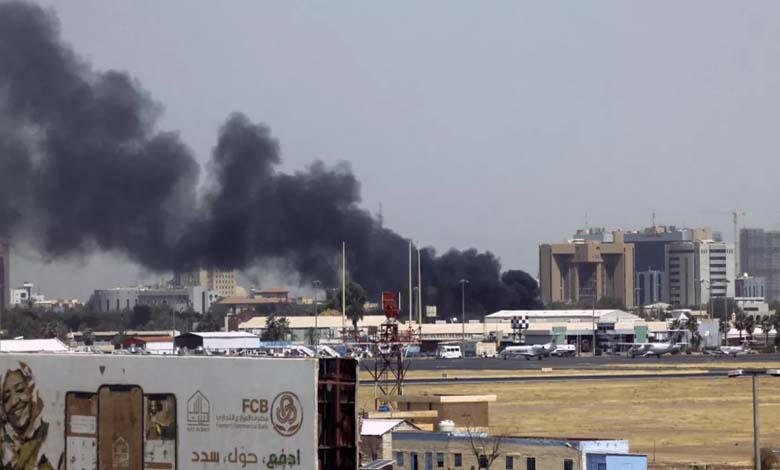
Based on their belief that the ongoing war in Sudan is ‘the solution and the only bridge that can return them to power,’ the ‘Shadow Brigades,’ affiliated with the Muslim Brotherhood organization, participated in the ongoing war between the army and the Rapid Support Forces since mid-April last year. This has complicated the crisis, resulted in the deaths of thousands, and the displacement of millions.
In seeking to understand why the ‘Shadow Brigades’ thirst for bloodshed and their efforts to ignite the flames of war, Faiz Sheikh, a former adviser to the former Prime Minister Abdullah Hamdok, believes that the 2019 revolution excluded the Muslim Brotherhood from the political equation, especially the dissolved National Congress Party.
Sheikh stated in an interview with ‘Al-Ain’ newspaper that the Muslim Brotherhood ‘aims to return to the situation before 2019 by solidifying the scene with blood and implementing their slogan “Let all blood be spilled.” He pointed out that ‘war is the last card for the Muslim Brotherhood‘s return to power, as the political process won’t accommodate them and it distances the army from politics, which is considered their only lifeline.’
Sudanese political writer Ashraf Abdel Aziz believes that the Muslim Brotherhood ‘insists on continuing the war as it represents their salvation from being held accountable for corruption issues they committed. It also serves as the last illusion of returning to power through the gateway of political violence they are adept at.’
Abdel Aziz, in his statement to ‘Al-Ain’ newspaper, explains that the Muslim Brotherhood has a firm conviction that betting on nationalism is the most significant guarantee for mobilizing the people around the war project, especially in light of the civil forces’ clear failure and inability to unite despite their shared goal of ending the war.
The toxins of the Muslim Brotherhood are eating away at Sudan He noted that ‘the United States sent a message through sanctions imposed by the U.S. administration on the Muslim Brotherhood‘s Secretary-General, Ali Karti, confirming the organization’s involvement in igniting the war. Consequently, their options have dwindled, leaving them with no choice but to continue the war.’
Sudanese writer and political analyst Mohamed El-Asbat says that the Muslim Brotherhood considers this war their last card and a lever to return to power after all their attempts failed in the years following the December 2019 revolution.
El-Asbat added that ‘the Muslim Brotherhood views this war as the solution and the only bridge that can return them to power.’
He pointed out that all of them, regardless of their factions, whether in the National Congress Party, the People’s Congress Party, or those who refrained from political work in the last four years or the final years of the ousted President Omar al-Bashir’s rule, all of them are advocates of war and military decisiveness.
It is worth noting that the Muslim Brotherhood brigades emerged during the current war in battles in the southern Khartoum armored forces, and during the clashes, Mohammed al-Fadl Abdulwahid, the son of the former Foreign Minister Mustafa Osman Ismail’s brother, was killed.
Mohammed al-Fadl is linked to the Islamic Movement‘s organization and holds the position of the Secretary of Thought in the Sudanese Islamic Movement, and his friends mourned him on social media.
Despite the repeated denials of the army leadership, media reports continue to suggest that the Muslim Brotherhood still controls the army’s levers.
After the fall of the ousted President Omar al-Bashir’s regime, the prominent Islamist Ali Karti was chosen to serve as the Secretary-General of the Islamic Movement, where he remained hidden from view.
Displacement and evacuation of the Sudanese people
As the war entered its first six months, nearly 6 million people were forced to flee their homes. There are approximately 4.5 million internally displaced people in Sudan, including an estimated 105,000 currently pregnant women. Over 1.2 million people have sought refuge from the ongoing conflict in neighboring countries such as the Central African Republic, Chad, Egypt, Ethiopia, and South Sudan. Nearly nine out of ten displaced people are women and children.
Exploitation and gender-based violence
Women and girls have been left struggling to access reproductive health services and life-saving protection. About 80% of hospitals in conflict-affected areas are out of service. In the Khartoum, Darfur, and Kordofan regions, less than one-third of health facilities are fully functional. All states in Sudan report severe shortages of medicines and supplies, including life-saving maternal health drugs. In neighboring countries, infrastructure and basic services are poor, and the flow of people seeking refuge is exhausting.
Sexual violence and gender-based violence have had a severe impact on women and girls, with access to protection and support services in Sudan and across borders at extreme risk. The risks of exploitation and sexual assault for women and children living in temporary shelters or overcrowded displacement sites have increased.
The United Nations Population Fund coordinates efforts with national governments, state governments, and humanitarian partners to increase the support and services urgently needed for reproductive health, prevention and response to gender-based violence in areas with a high number of internally displaced people in Sudan and in receiving/displacement sites in neighboring countries. This includes deploying midwives and mobile teams and providing capacity building for emergency maternal health and clinical management of rape to meet the health and protection needs of displaced women and girls.


